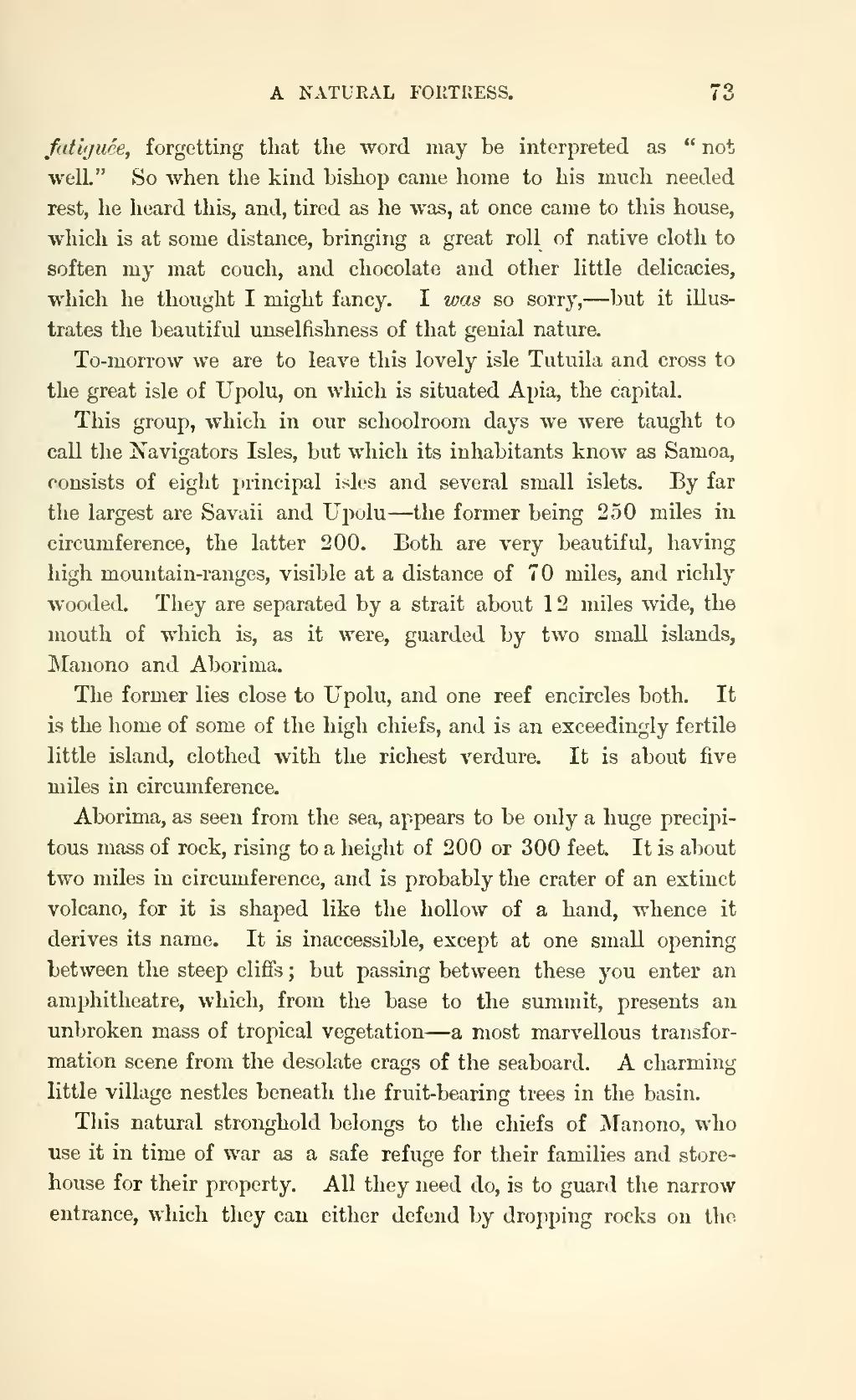fatiguée, forgetting that the word may be interpreted as "not well." So when the kind bishop came home to his much needed rest, he heard this, and, tired as he was, at once came to this house, which is at some distance, bringing a great roll of native cloth to soften my mat couch, and chocolate and other little delicacies, which he thought I might fancy. I was so sorry,—but it illustrates the beautiful unselfishness of that genial nature.
To-morrow we are to leave this lovely isle Tutuila and cross to the great isle of Upolu, on which is situated Apia, the capital.
This group, which in our schoolroom days we were taught to call the Navigators Isles, but which its inhabitants know as Samoa, consists of eight principal isles and several small islets. By far the largest are Savaii and Upolu—the former being 250 miles in circumference, the latter 200. Both are very beautiful, having high mountain-ranges, visible at a distance of 70 miles, and richly wooded. They are separated by a strait about 12 miles wide, the mouth of which is, as it were, guarded by two small islands, Manono and Aborima.
The former lies close to Upolu, and one reef encircles both. It is the home of some of the high chiefs, and is an exceedingly fertile little island, clothed with the richest verdure. It is about five miles in circumference.
Aborima, as seen from the sea, appears to be only a huge precipitous mass of rock, rising to a height of 200 or 300 feet. It is about two miles in circumference, and is probably the crater of an extinct volcano, for it is shaped like the hollow of a hand, whence it derives its name. It is inaccessible, except at one small opening between the steep cliffs; but passing between these you enter an amphitheatre, which, from the base to the summit, presents an unbroken mass of tropical vegetation—a most marvellous transformation scene from the desolate crags of the seaboard. A charming little village nestles beneath the fruit-bearing trees in the basin.
This natural stronghold belongs to the chiefs of Manono, who use it in time of war as a safe refuge for their families and store-house for their property. All they need do, is to guard the narrow entrance, which they can either defend by dropping rocks on the
